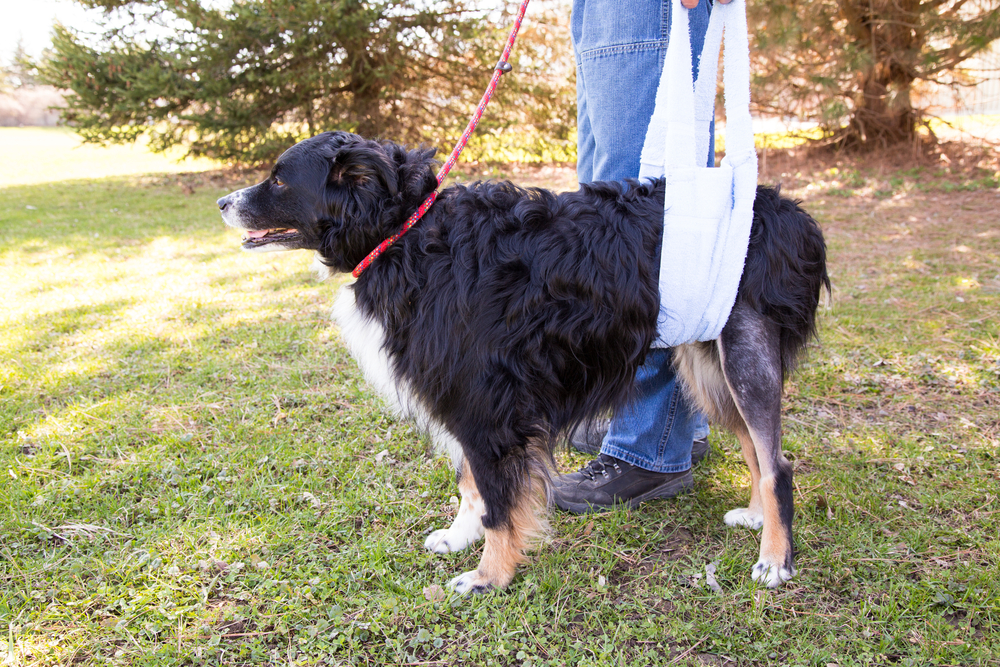“Oh no! What’s that?” you think to yourself, as you feel a small lump under your pooch’s silky fur. “This definitely wasn’t there during bathtime last week.” In a panic, you call Acorn Animal Hospital, to schedule an appointment for your pup’s mystery lump.
Have you been in this situation? Pets develop small lumps and bumps quite frequently, sending their loving owners into a tizzy, worrying about potential cancer. Before worrying about a cancer diagnosis, always schedule an appointment with an Acorn Animal Hospital veterinarian to get an accurate diagnosis, so you can begin an appropriate treatment protocol. In addition to malignant tumors, pets can develop a wide range of lumps and bumps, which can include the following:
- Allergic reactions to surfaces, medications, or environmental conditions
- Insect bites and stings
- Sebaceous cysts
- Adenomas
- Abscesses
- Skin tags
- Lipomas
Not all lumps or bumps that form under your pet’s skin are cancer-related. So, before you begin panicking about the thought of your best friend with cancer, step away from googling cancer signs in pets, and schedule an appointment with our team.
How to identify your pet’s lump
The only way to definitively diagnose your furry pal’s lump is with a comprehensive veterinary visit. During your pet’s appointment, we will perform a thorough physical exam, and diagnostic tests, such as blood work, cytology, biopsy, X-rays, and an ultrasound, as needed. We will also ask several questions pertaining to your pet’s recent history, to determine how this lump developed, and if you’ve noticed any other issues at home. Key indicators to watch for include:
- Appetite and weight loss — Not only does a cancerous process typically make your pet feel under the weather, it also often affects their appetite, causing them to lose weight. Weight loss because of cancer is often rapid, but can also be subtle and gradual, and any change in your pet’s eating habits or weight is cause for concern.
- Difficulty urinating or defecating — Many cancer types attack the urinary and intestinal tracts, leading to difficult urination or defecation. Lymphoma in the feline intestinal tract is, unfortunately, a common cancer that affects cats, while dogs can develop anal gland carcinomas, or transitional cell carcinoma in the bladder. If your pet is struggling to urinate or defecate, or you notice blood in the stool or urine, contact us for an appointment.
- Bleeding or discharge from body openings — A cancerous process attacking the body can cause a decreased ability to clot, or can create a tumor that ruptures and bleeds, leading to bleeding, or foul discharge, from body openings. Oral melanomas can grow quickly in a dog’s mouth, making chewing without traumatizing the tissue difficult, and causing bleeding from the mouth. Nasal tumors can lead to nose bleeding, while intestinal or rectal tumors can cause blood or discharge to leak from the rectum. Any bleeding or discharge is abnormal, whether or not it’s cancerous, and always requires veterinary intervention.
- Sores that do not heal — As your pet’s immune system is working hard to battle cancer, fewer of the resources necessary to heal sores or wounds are available. Non-healing sores are a key sign of an underlying disease process, and may be caused by cancer, fungal infections, or deep-seated bacterial infections.
- Difficulty eating, swallowing, or breathing — Many cancers metastasize to the lungs, and, as tumors develop throughout the lung tissue, breathing can be difficult, and may cause your pet to cough or be short of breath while exercising. Oral melanomas, or masses that develop in and around the esophagus, trachea, and stomach can grow large enough to restrict chewing and swallowing, as they push on these vital body parts.

- Lameness — When lameness is paired with a swollen area on a limb, especially in a large- or giant-breed dog, osteosarcoma tops the list of differential diagnoses. An incredibly painful bone cancer, osteosarcoma eats away at the bone, leaving it brittle and fragile enough to fracture through routine use. If your pet has suddenly developed a limp or a swelling on a limb that does not improve with rest, diagnostic testing is needed to discover the cause.
Has your furry pal developed a suspicious lump? Perhaps you’ve noticed unusual behavior in your best friend that hints at an underlying issue. If so, don’t wait any longer. Schedule a comprehensive checkup at Acorn Animal Hospital.
